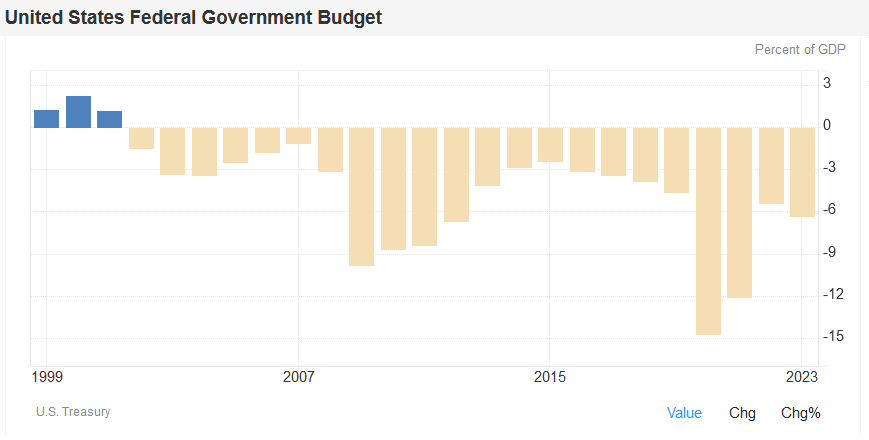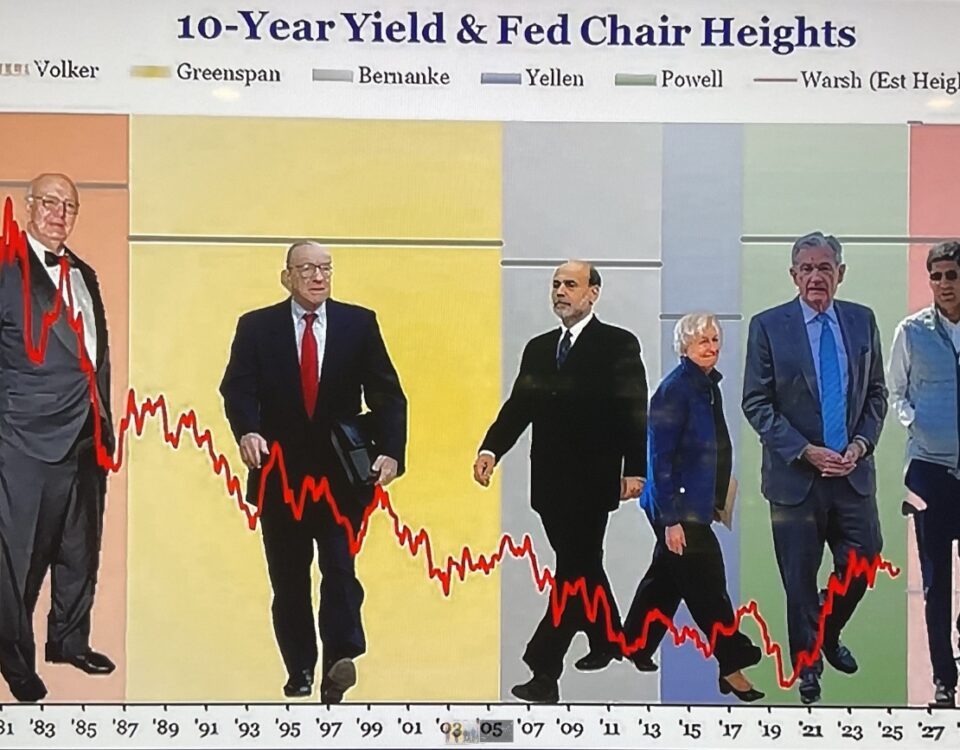SHI 6.5.24: Argentina is Going to the Dogs

SHI 5.22.24 – Dow 60,000?
May 23, 2024
SHI 6.19.24 – Meaty Observations
June 20, 2024Yes, the “Lab” in question is “testing” a Big Mac.
Argentina voted in a new President at the end of last year: Javier Milei. You may have known this. But did you know President Milei is the proud owner of five English mastiffs — four of which are named after famous economists, including one named ‘Milton’ after Milton Friedman? The fifth pup, of course, is not an economist. He’s Conan, named after ‘Conan the Barbarian.’
If you are unfamiliar with Milei, I’ll share a few of his more colorful affectations as shared by Time Magazine November of last year:
> President Milei campaigned on slashing public spending, eliminating Argentina’s central bank, and switching their currency
from the Argentinian Peso to the US dollar.
> Milei is a former rock musician and a TV and radio commentator.
> Milei believes that he and Conan (the dog) met in a previous life more than 2,000 years ago when Milei was a gladiator;
he claims they were destined to join forces in the future.
And last, but not least, we have this: Before the election, in an August, 2023 interview with newspaper “20minutos”, Milei said “… (his) dogs advise him in different areas: one in politics, another in economics, another gives him general advice.”
It appears the canine political advice was sound: Milei won the election. But how good is the canine economic advice?
“
Argentina tries ‘DOGONOMICS’ in 2024.“
“Argentina tries ‘DOGONOMICS’ in 2024.“
It’s an important issue, as Argentina has one of the world’s highest inflation rates and has for years. According to official sources, the inflation rate in Argentina has averaged 190% per year – and even higher before Milei came into office. As a result, their economy has languished and poverty levels have soared.
OK, let’s get back to the dogs: Can Milton and his canine buddies solve the Argentine inflation problem that humans have struggled to resolve for decades? Can ‘dogonomics’ be the answer?
Welcome to this week’s Steak House Index update.
If you are new to my blog, or you need a refresher on the SHI10, or its objective and methodology, I suggest you open and read the original BLOG: https://www.steakhouseindex.com/move-over-big-mac-index-here-comes-the-steak-house-index/
Why You Should Care: The US economy and US dollar are the bedrock of the world’s economy. But is the US economy expanding or contracting? Expanding …. By the end 2023, in ‘current-dollar‘ terms, US annual economic output rose to an annualized rate of $27.94 trillion. After enduring the fastest FED rate hike in over 40 years, America’s current-dollar GDP still increased at an annualized rate of 4.8% during the fourth quarter of 2023. Even the ‘real’ GDP growth rate was strong … clocking in at the annual rate of 3.3% during Q4.
According to the IMF, the world’s annual GDP expanded to over $105 trillion in 2022. Further, IMF expects global GDP to reach almost $135 trillion by 2028 — an increase of more than 28% in just 5 years.
America’s GDP remains around 25% of all global GDP. Collectively, the US, the European Common Market, and China generate about 70% of the global economic output. These are the 3 big, global players. They bear close scrutiny.
The objective of this blog is singular.
It attempts to predict the direction of our GDP ahead of official economic releases. Historically, ‘personal consumption expenditures,’ or PCE, has been the largest component of US GDP growth — typically about 2/3 of all GDP growth. In fact, the majority of all GDP increases (or declines) usually results from (increases or decreases in) consumer spending. Consumer spending is clearly a critical financial metric. In all likelihood, the most important financial metric. The Steak House Index focuses right here … on the “consumer spending” metric. I intend the SHI10 is to be predictive, anticipating where the economy is going – not where it’s been.
Taking action: Keep up with this weekly BLOG update. Not only will we cover the SHI and SHI10, but we’ll explore “fun” items of economic importance. Hopefully you find the discussion fun, too.
If the SHI10 index moves appreciably -– either showing massive improvement or significant declines –- indicating growing economic strength or a potential recession, we’ll discuss possible actions at that time.
The Blog:
The Argentine inflation rate has been out of control for years. Can you imagine living with 100%+ annual inflation? How does a household manage their finances?
As you know, I just returned from Hawaii. While in Maui, enjoying a beach day near the pool, I found myself sitting next to a chatty gal who was visiting from Argentina. Along with about 1,000 other people at the resort, she was employed by Salesforce, the international behemoth with a market cap exceeding $220 billion. I saw my opportunity to speak directly to an Argentine citizen about the impact of inflation on daily life, and so I asked how she manages her finances in an economy where consumer prices can increase by 10% — or more – per month. Her answer might surprise you.
Salesforce, she said, adjusts her salary every month based on the change in the relationship between the US dollar and the Argentinian peso. So if the peso-to-dollar exchange rate increases by 10%, so does her salary. This way, she said, she is unimpacted by the inflation rate changes within and outside the Argentinian borders. Of course, she continued, people not employed by large, multi-national companies are not so lucky. Nor, she said, are retired folks, or those on a fixed income. While she felt lucky to be unaffected by the inflation problem, she acknowledged it was a horrible problem for the country as a whole.
What causes inflation of this magnitude? It’s complex, but this doesn’t help:

An exploding money supply is the major contributor. Money supply in Argentina increased by more than 10X in the 5-years since 2019.
Argentina, like many other countries around the world, has a spending problem. As their ability to borrow is limited (another story for another time), instead of borrowing, they simply “print money.” As their money supply rocketed higher, so did their inflation rate.
Enter ‘Milton the Mastiff’ and his owner, President Mieli. Mieli is trying something new. While I don’t know, for certain, if the economic plan came from Milton, Mieli has dramatically cut public spending in Argentina. And I mean dramatically.
According to Barron’s, in January of this year, because of the spending cuts imposed by Milei after taking office, Argentina realized its first monthly budget surplus since August of 2012. That same article comments, “…with poverty affecting 45% of the population, Milei has predicted an economic rebound within 3 months.”
Well, that seems rather quick to me. Is that 3-months in “human-years” or dog-years? I think dog-years. Converting dog-years to human-years, the turn around should be complete by the end of 2025. ?
How does he plan achieve this miraculous transformation? Milei slashed spending in Argentina’s public sector, halted new public infrastructure projects, cut energy and transportation subsidies, and halved the number of Argentina’s federal offices. Finally, he instituted a 50% devaluation of the peso against the dollar.
What happened?
Inflation subsided. According to one media source, the rate was down from 25% in December to about 10% in March, 2024. “The government did this by turning the 5.5% budget deficit it inherited into the country’s first surplus in over a decade, while boosting the central banks’ reserves, lowering its benchmark interest rates, and reducing the money supply – all without destabilizing currency and financial markets.”
Milei is using his early successes to negotiate IMF debt totaling $44 billion. He has vowed to ‘balance the budget’ this year. Milei and his advisors believe government spending cuts are just what Argentina needs after years of sky-high inflation, sluggish growth, and a poverty level exceeding 40%.
Clearly ‘Milton the Mastiff’ is an economic dogmatic deity!
Or is he?
Around the world and within Argentina, there are plenty of supporters and detractors. The supporters tend to be wealthy investors – bond prices are up significantly. Those upset by the cuts are directly impacted: Economic austerity is never popular with those who lose their jobs or income. More than 2,000 ‘public works’ projects across Argentina have been halted – many that were almost finished.
On that topic, it’s no surprise Milei has argued public-works projects are a hotbed for corruption, bribes and mismanagement. The cuts sent construction activity thru the floor in March. Sector activity declined 42%, its worst annual-rate decline since the pandemic lockdowns. 48,000 construction jobs disappeared between November of last year to February, an amount equal to 11% of the sector, according to the national statistics agency.
Here are two opposing views in a recent Bloomberg article:
“In general and as a matter of common sense, those projects that are almost done will be completed,” Finance Secretary Pablo Quirno said in an interview. “In every new government, there’s a transition. We are in that process.”
Alternatively: “Public works went from 100 to 0. I’ve never seen anything like it,” said Gustavo Weiss, president of Argentina’s construction chamber. “Even the most developed countries have important infrastructure demands, and less developed countries like ours have an infinity of needs.”
And the article finished with this comment: “… what’s happening is what the president warned Argentines was coming after he took office promising “shock therapy”: An incredibly painful, albeit hopefully temporary, bout of belt tightening that will cause suffering in the short term. The sacrifices — a feature of Milei’s plan, not a bug — are intended to crush inflation that approached 300% in April and repair an economy that’s underperformed for decades.
Milei’s budget cuts have included taking a chainsaw to social security and public wages, along with consumer subsidies. He’s also withheld some $2 billion in payments owed to energy companies as part of the efforts to conserve cash.
Milton the Mastiff is undeterred. He knows Argentina has defaulted on its sovereign debt 9 times in the past, making new debt near impossible to obtain. To pay its bills and fund its deficits, Argentina’s currency printing press, ran 24/7 – ostensibly resulting in annual inflation far above 100% per year. Milton knows this cannot continue. Clearly, he advised Milei that after decades of flagrant disregard for the realities of economics, the austerity and cuts had to be painful and deep to get the country back on the right track. Time will tell if dogonomics actually works.
But I believe Milton and Milei are right. Somewhat. Over the long-term, no person, company or country can spend with impunity forever. Eventually, creditors will lose faith in the “spender” denying credit, or imposing conditions, that are downright torturous.
And while today’s blog is not about the United States, it’s worth noting that the US, too, has spent far beyond its revenues for over two decades now:

The last US surplus was more than 20 years ago. Deficit spending has been the norm ever since. Of course, the US dollar maintains its position as the world’s reserve currency. Most sovereign and corporate debt issued by companies and countries around the globe in the past two decades have typically been sold in US dollars. Our currency, unlike the Argentine peso, is considered the safest, most sound on the planet. That fact gives us more latitude to navigate this issue … but we cannot “kick the can” down the road forever. The annual interest bill on US debt is quickly approaching $1 trillion. And growing. Ouch.
Perhaps it’s time to try dogonomics here in America? Maybe Milton the Mastiff can give the next US president some expert economic advice? Woof.
Shall we check in with the steakhouses?

Well, that’s the lowest SHI reading in more than a year. Interesting. As you’ll see below, the reading is not appreciably different than a few readings in March and April, but overall, it seems clear to me that demand for expensive steak house reservations is waning. A bit.
It’s worth noting other major economic indicators also seem to be losing steam too. This week’s Atlanta FED ‘GDPNow’ reading plummeted from 2.7% on May 31 down to the annualized rate of 1.8%. That’s a big decline and a weak forecast. The NY FED ‘Nowcast‘ has declined to 1.76%. While these are both forecasts, both have declined significantly in recent weeks.
Could the FED rate hikes finally be slowing GDP growth and our economy? Is the economy weakening? Good questions … and while I feel it’s too soon to say ‘yes’ I do feel these trends are a bit concerning and I’ll be watching carefully.
Remember, ‘slowing’ is not stopping. Nor does ‘slowing’ suggest an economic contraction — known as a recession — is around the corner. Slowing from the frenetic pace we’ve seen over the past year or so is probably a good thing. As long is we don’t see TOO much slowing.
Here’s the longer-term trend report:

Next week I will be in San Francisco for a “boots-on-the-ground” examination of the city’s steakhouse scene. I am so exceptionally committed to quality control here at the Steak House Index that I believe only a “steak-in-the-mouth” experience can accurately maintain index integrity. Thus, on this trip I will experience Epic Steak and report back to you, my 7-loyal readers. Yes, I’m up to 7 now!
But as a result, there will be no SHI blog next week. I apologize in advance … but quality control must remain a paramount objective at the SHI.
<:> Terry Liebman




